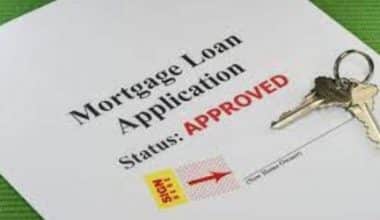There are numerous ways to accomplish the refinancing of a car. The procedure, however, may differ depending on the circumstances at hand. This is why it’s crucial to understand your refinancing alternatives so you can select the one that’s ideal for your circumstances. Hence, in this post, we will be discussing the act of refinancing, and how refinancing car loan rates with a bad credit score can help your finances.
Refinancing a Car
Your current auto loan will be replaced with a new one if you refinance your car. Your old debt is repaid by the new loan, and you start making regular payments on the new loan. Refinancing applications can be submitted rapidly, and many lenders can/may make decisions right away. Consequently, there are certain things to think about before diving in.
Is it Good to Refinance Your Car?
One of the best ways to save money is to refinance, provided you do it correctly. There are restrictions on everything that involves money, including refinancing. Refinancing can be the finest thing you’ve done since purchasing a car if done with a good credit profile, a competent lender, and at the correct moment. But if you hurry to refinance because you think it would save you money in any case, you’re mistaken. Prior to refinancing, you should preferably fulfill the requirements listed below.
When Should You Refinance Your Car?
#1. If Interest Rates have Decreased
Auto interest rates are determined by banks and other financial institutions using the Federal Reserve’s guidelines. You might be able to refinance your car at a lesser rate if the Fed just lowered rates. Even a little decrease in APR can result in annual savings of several hundred dollars.
#2. If Your Debt-to-Income Ratio or Credit Score Has Increased
If your credit was bad when you first financed your loan, a high APR was likely provided to you. Thus, you can refinance to get a lower APR and save more money if your credit has improved since then or if you’ve decreased the amount of loans you’ve taken out.
#3. You Believe Your Initial Loan Was Unfair to You.
It’s also possible that you did not receive the APR you earned while having excellent credit. This happens frequently at credit unions and dealerships, which aim to lock you into the first offer you receive. They don’t just limit your options; they also capitalize on your FOMO (fear of missing out) by informing you that the offer is the best one available. You can browse about, compare offers from several lenders, and obtain the APR that is appropriate for your credit score with car refinancing.
#4. You Struggle to Manage your Monthly Finances.
The majority of car owners encounter the issue of overestimating their capacity to repay the auto loan. This could cause problems with cash flow, especially if you’re managing a household with children who are in school or attending college. You can refinance your car to save money each month if you notice that your wallet is running low before the end of the month.
Other Things to Know When Refinancing Your Car
We have some advice on how to refinance a vehicle loan, but it all depends on your circumstances. When you’re prepared to begin, submit an online finance application. In addition, bear the following in mind while refinancing a car loan:
- Fees and Penalties: Check your old car loan’s terms to be sure there aren’t any fees or penalties associated with paying it off early.
- Financial Situation: It would be challenging to get refinanced if the amount you still owe on your car is greater than the value of the vehicle.
- Age of the car: Getting refinanced is more difficult the older and more depreciated the car is.
Refinancing a Car Loan With Bad Credit
Refinancing can make sense if you already have a terrible credit auto loan, interest rates have dropped since you bought your automobile, or you are in dire need of a reduced payment. Additionally, the refinancing procedure requires extensive study, just like buying a new or used car.
#1. Check your Credit
Before you begin looking for a new loan, review your credit record and score to make sure there are no surprises. File a dispute as soon as you become aware of any wrong or out-of-date information with the credit bureaus reporting it, such as Experian, TransUnion, or Equifax.
#2. Investigate your Options
To learn more about possible refinancing possibilities, speak with your current lender. Think about the banks or credit unions you now work with. Additionally, people with less-than-perfect credit may consider internet lenders like Caribou, RefiJet, and Ally. You might be able to check your rate without it having an impact on your credit score, depending on the lender.
#3. Request a New Loan
Any papers the lender would require to hasten the review procedure should be gathered before filing a loan application. Most will demand documentation of your salary, place of residence, and current loan details. Along with those details, you’ll also need to enter your car’s mileage, make, model, and VIN. Fill out the blanks completely when you apply to prevent errors that could cause your application to be rejected. The lender will verify the data you submit.
#4. Complete the Loan.
To make sure the terms and conditions fit your needs, carefully review the loan documentation. If so, acknowledge your agreement by signing on the line. Either you or your current lender will receive the monies straight so you may repay the initial loan.
How to Boost Your Bad Credit Loan Before Refinancing Your Car
Prior to refinancing your car loan, it is in your best interest to raise your bad credit score. A higher credit score could mean the difference between earning a 5% or a 19% interest rate, which is usually reserved for consumers with good or exceptional credit.
Here are some useful steps you may take to raise your bad credit loan score in refinancing your car :
- Keep up with your bill payments.
- Get any past-due obligations current.
- Your credit card balances should be 30 percent or less of your credit limit.
- Keep previous credit accounts open.
- Apply for new credit only when necessary.
To track your development, you should also keep an eye on your credit score. With your monthly statement, several credit cards or lenders will give you a free credit check. If so, you could have to make do with frequent checks or pay to view your score.
Refinancing Car Loan Rates
Finding the best loan involves more than simply the annual percentage rate (APR), even though the greatest car refinancing rates might help you save money.
#1. Auto Approve
Auto Approve does not provide financing for the purchase of new vehicles because it focuses on refinancing and lease buyouts. Auto Approve has one of the finest car refinancing rates, with a starting APR loan of 2.25%. Auto Approve offers various advantages despite not having the exact lowest APR among the lenders in this assessment. When you can pay off your loan early, for instance, you can save even more money because the lender doesn’t impose a prepayment or application fee. Auto Approve does levy a loan origination fee.
With Auto Approve, you also have some flexibility because borrowers can select payment terms of 12 to 84 months. If your credit score isn’t the best, Auto Approve may still be a wise choice. Its 580 minimum score is lower than what many lenders require. Customers and business associations in the industry highly regard Auto Approve. The Better Business Bureau (BBB) has granted the refinance lender an A+ rating and certification.
#2. PenFed Credit Union
PenFed Credit Union normally provides introductory APRs that are competitive. To access any of PenFed Credit Union’s financial products, though, you must be a member. You must work for the federal government, be a member of the military, or donate to one of a number of carefully chosen organizations in order to accomplish that.
PenFed has a higher minimum credit score requirement than some of the other lenders on this list, at 610. Therefore, not all borrowers may be able to take advantage of the lender’s low rates. The credit union also has a history of imposing steep penalties for missed or late payments. Due to its A+ rating from the BBB, PenFed Credit Union has a solid reputation in the sector. That contrasts with the lender’s client rating, which is almost 1.2 out of 5.0 stars on the website. PenFed, also, has good consumer relations on other websites.
#3. myAutoloan
You can browse around with individual lenders to find the best refinancing car loan rates or utilize a loan marketplace to compare multiple lenders at once. Consider myAutoloan if the latter strikes you as the preferable strategy. You must provide some personal data on the myAutoloan website before you can start receiving refinancing options. Rates as low as 1.99% APR can be obtained with this strategy. Higher credit scores qualify for the best rates, but customers with lesser scores can still find lenders on the myAutoloan marketplace. One of the lowest minimums our experts discovered is 575, yet you can still obtain refinance auto loans with that score.
The business also provides a useful loan calculator that you may use to compute your monthly loan payment based on the APR, period, and loan amount.
#4. Consumers Credit Union
Consumer Credit Union offers some of the finest car refinancing loan rates, with beginning APRs of 3.49% for new cars and 3.74% for used cars. Consumers Credit Union provides a variety of alternatives for loan amounts and term lengths. Loans between $5,000 and $150,000 are available with maturities as long as 84 months. As a result, consumers can locate auto refinance loans for a range of automobiles and customize the loan terms to suit their needs.
Consumers Credit Union has a solid reputation in the market despite being a smaller organization than some of the other lenders in this assessment. The BBB has given it an A+ rating and accredited it. Therefore, compared to businesses with larger customer bases, this one has fewer online customer reviews because of its modest size.
Pros and Cons of Refinancing a Car
We will be looking into the pros and cons of refinancing a car shortly.
Pros and Cons of Refinancing a Car: Advantages
Pros of refinancing a car include:
#1. Reduced Monthly Obligations
Borrowers with excellent credit might save between $800 and $1500 annually on auto loans. You’ll be able to significantly lower your monthly cost even with a fair to average credit score. Then, you can use this money to pay for other household bills, settle student loan debt, or even for gas.
#2. Making Reduced Interest Payments
Not the principal, but the interest payments need the most work while making loan repayments. If your interest rate is greater, interest charges will add up much more quickly. If you want to pay less interest and have the loan paid off quickly, refinancing is a wonderful option.
#3. Early Repayment of Your Current Debt
Says you intend to take out a new loan in the upcoming couple of years. It would be much simpler if you paid off your present auto loan before then because it will raise your credit score and give you some extra cash. If you don’t mind paying more each month, you can refinance your car to receive a shorter term.
#4. Utilize the Equity in Your Car.
Refinancing can also aid you if you anticipate experiencing financial difficulty in the near future. With a cash-out refinance, you can borrow up to 125% of the vehicle’s market value using the equity you already hold in the vehicle. You must not, also, be “underwater” or “upside-down” on the loan, meaning that you owe more than the automobile is currently worth.
Pros and Cons of Refinancing a Car: Disadvantages
Cons of refinancing a car include the following:
#1. Longer Terms Come with Higher Interest Fees
Refinancing your auto loan for a longer period is one option to lower your monthly cost. But as the months go by, the interest charges grow, and eventually you can find yourself paying more than the loan’s original balance.
#2. Prepayment Charges and Penalties
For repaying a loan early, some lenders impose prepayment penalties. This is because lenders profit from interest on the principal, which they would otherwise lose if you paid off the loan early. The maximum fee levied by auto lenders is 2% of the outstanding loan sum.
#3. You Might Turn Upside Down.
The risk of getting underwater on your loan exists even if your top priority is just to save money each month and you don’t mind extending the term of your loan. In this situation, you might ultimately pay more than the car is worth.
Does Refinancing a Car Hurt Your Credit?
Yes, refinancing can have a negative impact on your credit score, to put it succinctly. A rigorous credit check is performed when you apply for a new loan to refinance your vehicle loan.
How Long Does Refinancing a Car Take?
Some lenders will accept the loan application the same day it is filed. Others could need a few extra days or even up to two weeks.
Why Refinance Is Good?
The following are some of the top causes for refinancing: Reduce the interest rate. Consolidate debt with a high-interest rate. Use the equity in your property to get money.
What Is the Point of a Refinance?
Refinancing is sometimes done with the intention of lowering the fixed interest rate, lengthening the loan’s term, or switching from a fixed-rate mortgage to an adjustable-rate mortgage (ARM) or vice versa.
Can I Refinance My Car Loan and Get a New Car?
You cannot refinance your auto loan in order to purchase a new vehicle. Refinancing is done in order to get a better bargain on your present vehicle.
Does Refinancing a Car Skip a Payment?
Remember that when you refinance your vehicle, you are not skipping a monthly payment. You will pay that sum later because it is merely being added to the new debt.
Related Posts
- BEST AUTO REFINANCE LOAN COMPANIES IN 2023.
- Important Things to Know Before Refinancing Credit Card Debts (Refinansiering Av Kredittkort)
- HOW MANY TIMES CAN YOU REFINANCE YOUR HOME: Updated
- WHEN SHOULD YOU REFINANCE YOUR CAR? Is It Ever a Good Idea to Refinance Your Car?
- REFINANCING AN AUTO LOAN: How It Works, Best Credit Cards & Ideas






